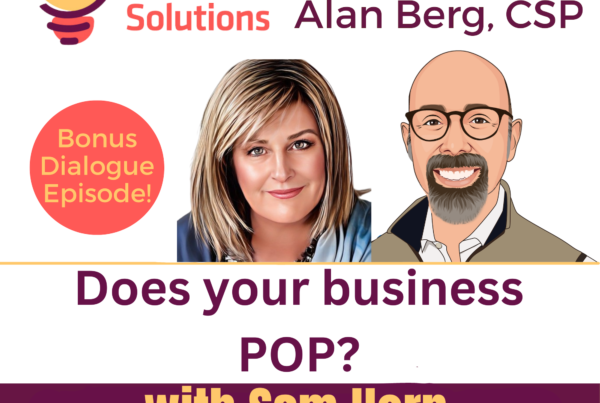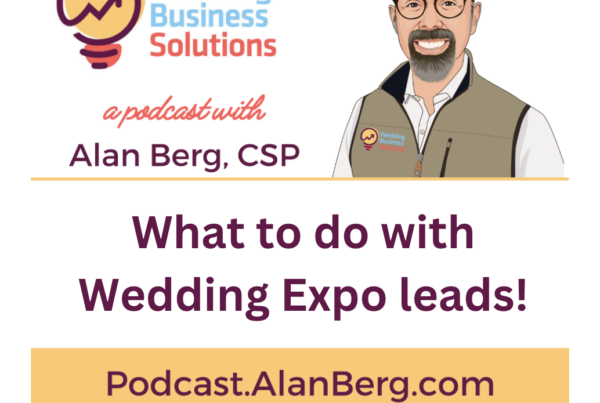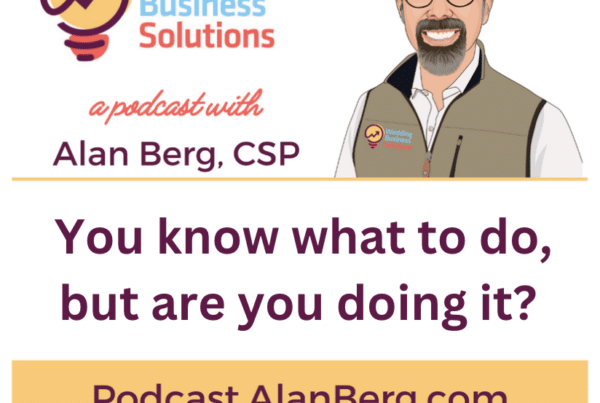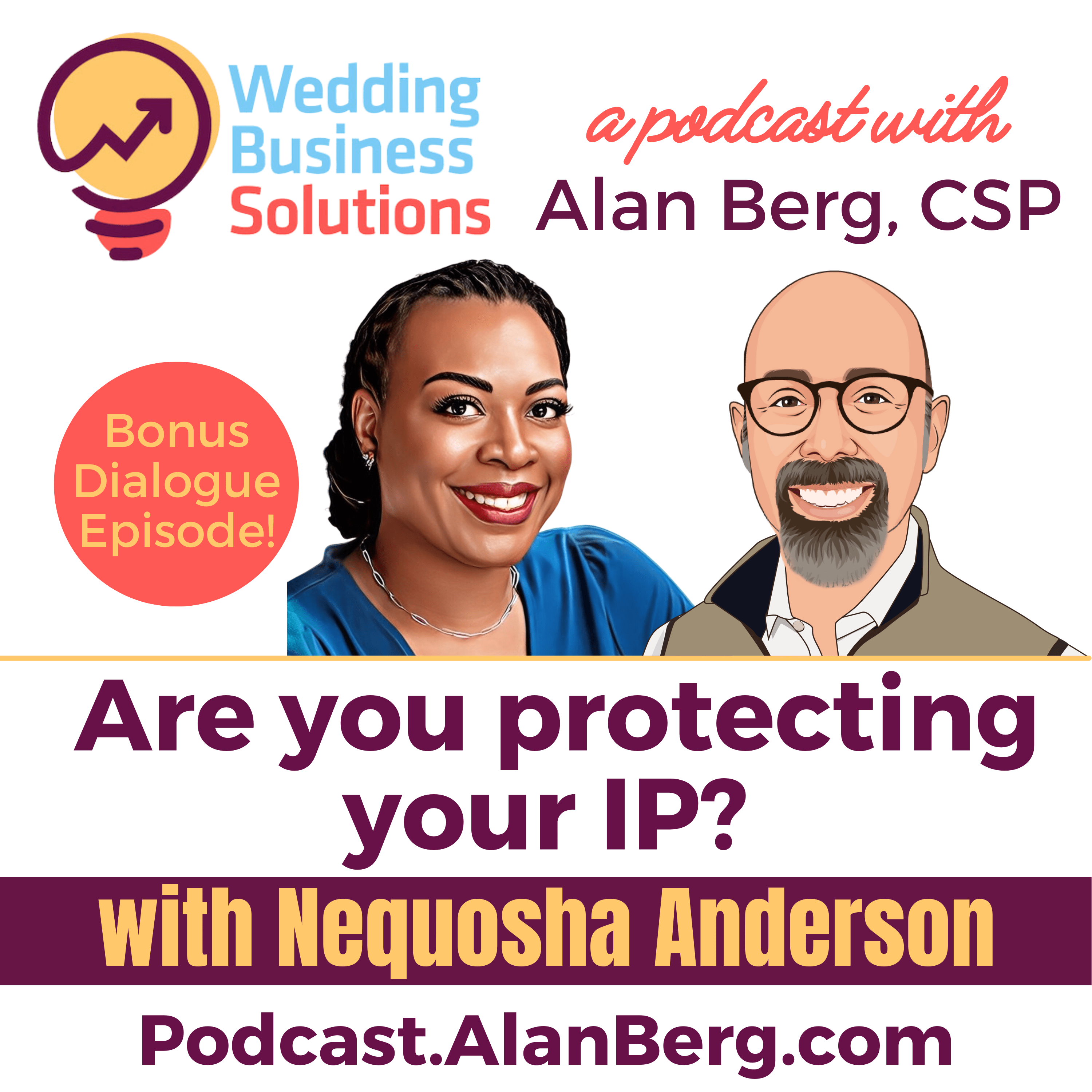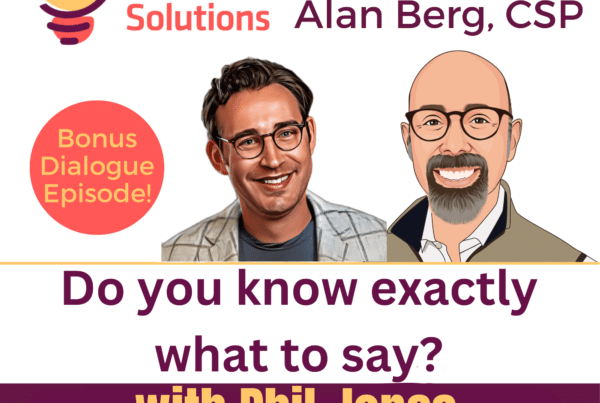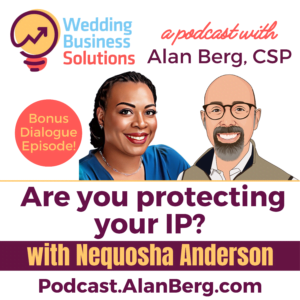 Nequosha Anderson – Are you protecting your IP?
Nequosha Anderson – Are you protecting your IP?
I love when listeners suggest guests and topics for the podcast. Nequosha Anderson was recommended to me after she spoke at a local association event about protecting your intellectual property. I’ll bet it’s something that most of us never think about, that is, until it’s too late! Whether it’s someone using a similar business name or even what they call their packages, there’s so much more to IP – Intellectual Property – than just copying a logo.
Listen to this new episode for some real insight into what IP is and how to protect yours.
Note: This podcast is for informational purposes only and neither the host or guest are giving direct legal advice. Please consult your attorney for legal advice for your business.
Nequosha Anderson – (NEEE-QWO-SHAA)
About Nequosha:
Nequosha is a business and intellectual property attorney for the last nine years who assists primarily women creatives who want to legally protect their income producing ideas. She safeguards businesses and brand assets to ensure their intellectual property is secure and not stolen allowing the business owner to creatively operate in their genius and not be robbed of what’s rightfully theirs. She serves clients in this space throughout the United States.
FIRM NAME: Anderson Law Firm PLLC
SOCIAL MEDIA:
– LinkedIn: https://www.linkedin.com/in/nequosha-anderson/
– Instagram: http://www.instagram.com/esquire44
– Facebook: Anderson Law Firm PLLC https://www.facebook.com/andersonlawfl
– YouTube Series: The Business Lawyer Said Q&A https://www.youtube.com/channel/UCvpMR_2n2lK-Vs_7Z2wBArQ
Listen to this and all episodes on Apple Podcast, YouTube or your favorite app/site:
- Apple Podcast: http://bit.ly/weddingbusinesssolutions
- YouTube: www.WeddingBusinessSolutionsPodcast.tv
- Spotify: https://spoti.fi/3sGsuB8
- Stitcher: http://bit.ly/wbsstitcher
- Google Podcast: http://bit.ly/wbsgoogle
- iHeart Radio: https://ihr.fm/31C9Mic
- Pandora: http://bit.ly/wbspandora
Below is a full transcript. If you have any questions about anything in this, or any of my podcasts, or have a suggestion for a topic or guest, please reach out directly to me at [email protected] or contact me via text, use the short form on this page, or call 732.422.6362
Please be sure to subscribe to this podcast and leave a review (thanks, it really does make a difference). If you want to get notifications of new episodes and upcoming workshops and webinars, you can sign up at www.ConnectWithAlanBerg.com
– Intellectual property for wedding and event professionals. Yeah, you need to know about it. Listen to this episode. Hi, it’s Alan Berg. Welcome back to another episode of the Wedding Business Solutions Podcast. I am so happy to have on Nequosha Anderson to talk about intellectual property. How you doing Nequosha?
– I am doing well, Alan, how are you today?
– I am doing great. Yeah, this is something that when this was brought to me by a mutual friend who is.
– Georgia D. Francisco.
– Shout out to Georgia over there. Georgia brought it. I was like, you know what? This is something that I’ve thought about in the past because part of my history is I was at the Knot, I was vice president of sales at The Knot. So we’ve thought about stuff like that. I’ve published wedding magazines, I’ve published books. So I think about intellectual property as a speaker, as an author, things like that. But wedding and event professionals have intellectual property, but half the people listening are like, “What are they talking about?”
– That’s true.
– And how does this affect me? So what kind of intellectual property, well, first of all, give us a little bit about your background real quick.
– Oh, real quick, real quick note version. So, I am an intellectual property and business attorney. So I tackle things from that angle, and people hire me when they want to secure their income producing assets to make sure that they are not robbed of what’s rightfully theirs. So when you think of intellectual property, I want you to think of not just tangible things, but intangible things. I want you to think about your brand logo. I want you to think about your signature package. I want you to think about your signature way you deliver your photography. All of those things are intellectual property that makes your business run. We are mainly service-based business. That means we are providing a service to individuals. So when we are in that lens, we definitely have IP, because our business runs on our intellect. It runs on the things that we create in our mind, and we physically make tangible. So when you are, “I’m a wedding planner, that don’t apply to me.” Actually it does, and we’re going to dive a little bit more into it.
– So we have many, many people listening, from people that have very tangible things, like buildings with big signs outside and trucks with their stuff on it. Everybody’s got a website. So that, it’s kind of a tangible intangible, right? We can’t touch it, but it feels more like a tangible thing than my creation as a florist who’s created a centerpiece.
– Yes.
– And that centerpiece is your intellectual property, right? So what’s to stop somebody from seeing that picture and copying it.
– A copy of federal copyright, maybe that’s a intellectual property. So what people they think big when they think of IP protection, they think, “Nequosha, I need to go get a federal registration and copyright. I need to go get a trademark.” Or is it eligible for a patent? What is that? So one of the key things I want people to, is to zoom out a little bit, one of the key things that before we dive any bit into the land of IP, I want you all to do what I call inventory. Most of you have warehouses and you know where this particular asset is, or this particular vase or this particular sofa. If you do setups and things of that nature, do the same thing with the assets in your business. Do a log where it’s like, we created our website on this day. Okay, well maybe your website is eligible for copyright protection. Did you think about that? Because there are new people entering the space and they look to the people that are superior in the space, and they may do what we call air quote copy. But what if they start copying it to the point where people are coming to you and like, “Hey, I went to your website” and you’re like, “My website is down. What are you talking about?” And they show you a website from a competitor. How would that make you feel? When your traffic to your business starts getting diverted? That’s when we call some real IP issues going on. It’s to the point where the consumer doesn’t know the source of the goods. So that’s where IP really comes in. It protects the source of goods or services. So you want the consuming public to make sure they understand when they come to you, they know exactly what they’re going to get. They can trust it, they can see, feel, touch, taste it, come on Baker. And one of these things, it’s invaluable to your business. because depending on what your goal is for your business, there are some people who want to scale, to sell. There are some people who want to just maintain it and not have generational legacy. They don’t want to leave it to someone. They just want to maintain what it is. But if you are definitely in the lens of, “I want to sell my business Nequosha, I know that’s what I want to do.” Well, investors or people who are coming to purchase your business want to make sure that you have monthly recurring revenue and you have a brand that is worth protecting. Because why would I buy into your business if Tom, Dick and Harry can do it?
– Right, right. And that’s the goodwill. A lot of times people talking about goodwill. So you mentioned a couple of things there. You talked about trademark, you talked about copyright, you talked about patent. So, for those of us that did not go to law school, the difference between a trademark, a copy, well, we actually could say a service mark, a trademark, a copyright, and a patent. If I can geek out just a little bit there.
– You definitely geeked out. You still, I perked up like, “Ooh, we going there? We can go there. You want to go there? We can go there, honey.”
– Yeah, let’s go there.
– All right, so this isn’t my analogy. It may not be right, but it tends to help people understand just a little bit better. I always like to think of a copyright as a house, right? And the copyright protects everything that’s inside of a house. So the legal definition of a copyright is a protection for an author and their source of their work. It protects the author work in the entirety of the project. So when I think of that, I think of a house and I have home security, ADT, Vivint, whatever your brand of choice is, they protect your whole house. So a copyright will protect your entirety of your project. Now, when it comes to trademarking, trademarking is the source identifier for your good or service. It lets the consuming public, your audience know that when they see that particular logo or phrase or colors, they know who the original, like who is the author of that particular logo. Like they know the services or goods they provide. So when I equate that with the house, I think of a address. When you look at the address, you know exactly where it’s going to take you. You know exactly where it is on the map, and you know exactly what is there, right? So when you think of a copyright, think of a house. And when you think of a trademark, think of the address that leads you to the house.
– Okay.
– Okay? Now let’s talk about patents. Patents are what they call a scientific or mechanical or a chemical invention of some sort. Usually the good thing that most people that can relate to a patent is a toilet paper holder, toilet paper have a holder inside of your house. The mechanical aspect or invention, the faucet, the scissors, or some type. It doesn’t necessarily have to, I’m naming physical things, but it doesn’t always have to be something physical. But those are just the most easiest examples. Easiest is that the word? I dunno. Those are the most relatable examples that I can think of when I tell people about patents, formulas, the aspirin, or as you know, recently, we’ve all came in contact with patent work. If you got the vaccine for Covid, it’s a patented process. And right now we have companies that are battling out on who’s the rightful owner of that particular solution. So those are the main levers of the IP world. Now, you did talk about service marks. Service marks are things that indicate a particular service of a business. They may not be eligible for what we call, trademark protection on the principal register, but they are eligible as source identifiers for your goods of service. The most common service mark that I can always think of is Target photo. The next time you’re in Target or Target optical, you may go up and see their logo and it’ll say SM next to it. And that just means that it’s a service mark for that particular brand. That means they’re using it to advertise a particular service they have. So if you want to know which one you’re eligible for, it’s so important that you sit down with someone like me and we can do a deep dive. But the best way to help us do that deep dive is to do that inventory log to see what you have. Most people think that, “Oh, Nequosha, it’s just my business. It’s just me, it’s just my spouse. It’s just my cousin, my mama, my cousin, sister, grandma, whoever. We don’t really have anything.” You do have it until someone takes it. You do have it until you start losing revenue. You do have it until you don’t. And we want to get you in a position to where it is at the top of your mind. Because we live in a digital world. We live in a world where artificial intelligence and all these things are going at a rapid pace. So you need to put your flag in the ground and stake your claim as soon as possible because these tools are going to be able to help you. And yes, yes, yes, yes. The court system moves much slowly. Than we would like, yes, I cannot change that, my friends, I promise you, if I could, I would be a zillionaire. Like I’ll be more than Elon Musk rich. But right now I have to deal with what I have. But I am so encouraging all business owners to do that intellectual property audit. Determine what you have and see what you’re eligible for because it can enhance your business. From my standpoint, Alan, I will always live with this. Most businesses that I see that protect their intellectual property, their growth weight, growth rate, goodness, I can talk today, growth rate is much higher and their sustainability is much longer than those who don’t. Because you are more invested in your business. There are so many people, you’ve seen, the listeners have seen that come into this industry, here today, gone tomorrow, right? There is value in longevity, let’s protected.
– Right. Well, there are people that don’t think of themselves as a business until they have to, when they get asked for their insurance certificate or things like that. So, all right, let’s just geek out just a little bit more before we talk about the types of things. So you see an SM next to some things. You see a TM next to some things. You see a C in a circle, you see an R and a circle.
– Yes.
– I think I’ve covered them. So you said SM So what’s the difference between TM trademark and an R in a circle?
– I love this question. I love this, makes me happy. Like, “Can I just stay here?” I love these questions. So a TM just signifies to a user or an audience that your business is demonstrating that this is a trademark of your business. That does not mean that that symbol, slogan, color or however you’re advertising is actually registered with the United States Patent and Trademark Office. In order to use, in order to demonstrate to the public that you have a registered trademark, you get to use that registered R symbol. That means that you have a federally registered trademark. Ma’am, sir, person, human being, please do not use that registered R symbol. I don’t care what your graphic artist told you. I don’t care what your marketing person told you, unless you have a federal registered trademark, you cannot use that R symbol. It is a crime. You will go to jail, you will go to the federales jail.
– Wow.
– You don’t want to see the federales, I don’t want you to see the federales. Don’t use that R symbol. “Oh, Nequosha, they’ll never find out. Who’s going to know? Who’s going to know?”
– They will find out because it’s like little teeny tiny things that we think nobody’s going to know. Who’s going to know? They find out, because all it takes is for one person to go and search, and all of this is public knowledge at the uspto.gov. You can go look and you can see if you actually are a rightful trademark owner. Because get what happened is, someone can actually register your mark, even though you are claiming that you’re the registered owner. Because it’s not the first to create, it’s the first to file with trademarks. And so many people don’t know that.
– All right. So let’s talk about copyright then.
– Okay, the C.
– Yes.
– So with the C symbol, you technically can use the C symbol. And it just indicates to the audience that you are considering this copyrightable work, doesn’t mean that it is registered with the US Copyright Office. No, it does not. So copyright is a little murky because technically you can use the C symbol if you are indicating that it is a copyright to your business or to you. Now, the thing with that is, copyright immediately vests in the author of the work, it happens. It’s like magic. It’s like, Cinderella story where you take the little fairy godmother Boo, do do dot, do do. It happens as soon as you, it’s sort of like those magic words when people say, “I do,” and now all of a sudden I’m responsible for you. It’s very similar. And so, but when you do the federal registration of the copyrighted work, you get a little bit more rights. The government say, “We going to strengthen you up a little bit.” So that means that if you have that, then it is an automatic violation if someone uses your stuff without your knowledge. And you will be protected in all 50 states. Let me jump back a little bit. Trademark federally registered is protected in all 50 states. So even if you don’t have a business in Utah and you’re in New Jersey, your trademark is still protected in Utah. That means no one can actually use it without your permission. So jumping back over in copyright land, if you get a federal registration and you find out that someone in Utah, shout to all the Utah listeners, sorry. But if someone in Utah is using your stuff, then it’s what we call a statutory infringement. And you could be eligible for more monies and attorney’s fees because even if they say, “Oh, I didn’t have notice,” you registered with the US Copyright Office. So there was automatic notice and there can amp up the fees. So there is value in registration.
– All right. But if you don’t register, so like my books, my books are all published, they’re all copyrighted books there. There’s all my six books conveniently over my shoulder.
– Hey hit that link.
– There you go. So my books there are all copyrighted. And we can prove when they were first published, going back to when they were first published. So obviously I can use that C in the circle. But if somebody in another state, we’re not going to call out our friends in Utah and somebody in another state, somebody in Texas.
– Come on Texas.
– Wisconsin. Wisconsin or New Jersey or whatever, when some that’s out outside of my state uses that, am I protected?
– You are. So you are the author of the work, and you can declare when you first publish the work, and it all goes down to damages. When it comes to federal copyright registration, your damages could be increased depending on how you register the work. You could register the work in a collective, which means that if it was in a collective, then if they only use one portion of what you registered, then your damages will be much smaller. But if you register the collective and you register that portion individually, then there’s a possibility that your damage claim could be much higher because they technically infringed on two copyrights versus one. So these are all strategies and things again, that a competent IP attorney can sit down with you and develop your IP protection strategy. Baby, we can go to the moon if you want to.
– Yeah.
– But it just depends. But for most business owners, small business, just one registration, just one trademark and one other IP protection tool that most people do forget is having a valid contract and written agreements. Oftentimes people go to the big boys, trademark, copyright, patent type things, and they forget about their little friend contract. Contracts are actually for your benefit and the people engaging with you benefit, it’s like a bible. It’s basic instructions on how you’re going to operate together. So let’s not forget about that friend.
– Okay, but you’re not talking about, copywriting your contract?
– No, no, no.
– No, okay, no. You’re talking about just having a contract.
– Just having a contract. That’s the most easiest way people can get into some type of enforcement or protection strategy. Most people feel like, “I don’t have the money, Nequosha, to go and jump into those other things. What can I do?” Let’s get a contract. Let’s start there.
– Let’s start with that. Okay, so now websites, right? Website, copyright website. It’s on the bottom of my website. Now the question is, does it need to have, because I’ve seen both, the range of years since you first put a website up. Or is it okay to say copyright 2023?
– It’s good to say copyright 2023. Some people do the range for style to get people on notice of when it began and where it coming is. There’s no right or wrong way, but if you are designating to the audience that this is copyrightable work, you do need to say, “Hey, all rights reserved,” list the date of publication, or the most recent publication and the name of your company. Those are the things that will kind of help you out. I see you taking notes here, Alan.
– I don’t know if mine says all rights reserved.
– Or you could just do the C symbol.
– I have the C symbol, yeah.
– These are all things that can indicate to a person that, “Hey, this person is considering this to be copyrighted work.” That means I need to get their permission if I want to use it in any way.
– Okay, which I do. It’s funny because I do have that in my books. I didn’t think about that phrasing. I don’t know if it’s there or not, but I will go look right after this. I’m going to go look at that. So, okay, so we’ve gone through some of the geeky stuff, some of the technical stuff over there. And so let’s say your logo is not trademarked. It would be trademarked.
– Yes, come on, good job.
– Okay, so it’s not registered. You don’t have the TM symbol on it.
– Okay.
– Okay. Somebody copies your logo, right? What is your recourse then with that? Because you didn’t say trademark and you didn’t go and register it.
– So then that puts us in what we call common law rights. So you technically would have to, you could defend against it and you are on what we call defense and defense is always more costly. So it’s better to be on offense, it’s less money. But if we’re on defense, and I would advise a client, my hypothetical client, I forgot to give this disclaimer, nothing here today is personalized legal advice. And I highly recommend that you go out and seek an IP attorney that you of your choice. Okay, jumping back. So with that said, what a recourse does a person have? They have what we call common law rights in the areas in which they were using the trademark. So let’s say, “Hey Alan, I was here first.” And you’d be like, “But I beat you the registration.” Then the law carves out what we call common law usage in the areas that you were already using it. So you wouldn’t get the protection in, let’s say outside of your home state unless you can demonstrate that you had actual tangible customer base outside and then it would carve out limited jurisdiction. So that is why it’s important to do the federal registration because even if you’re not doing transactions there, per se, you would get protection from the people in Texas, Utah, Wisconsin.
– Okay. Now we do have some people listening outside the country. So what we’re talking about is for US. Are there similar things in Canada, in the UK, in other, Mexico and other places where people are listening in?
– Most definitely. All those beautiful places. Do you have intellectual property registration? Especially in Canada, especially in Mexico. I deal with some.
– Australia.
– Australia I know we have some fun.
– Definitely in Australia. because I did one for a client there. I remember contracting with an IP attorney over there. You can definitely do a WIPO registration. W I P O, we call that a EU where it covers certain states that are a part, well formally a part of the EU, Britain has broken off with Brexit. So if you want to get UK protection, there’s a certain way we have to do it now. Thank you Brexit. And so there are certain ways we can register in one country and then break you off and get registration in another country. It’s just very strategic. This whole IP thing is very strategic because it can get very costly very quickly, right? So we want to make sure that as people are like, “Well, worldwide protection,” well wait a minute now, what you mean? Are you really going to go global with your brand? Is it really worth this investment? Because you got is one thing to get it, right? You have to maintain it once you get it. And this is where usually people fall off, they’ll come to me and say, “Hey Nequosha, I got a trademark. I’m straight girl, I’m good.” I’m going to be like, “Let’s see.”
– Right.
– Ooh, you forgot to do your annual renewal with your trademark.
– So let’s get into that there, because I have a feeling I’m going to have to cut us off at some point here. So let’s say somebody wanted to register their logo. A federal register, their logo. What is the process? Do they need an attorney to do that? And what’s the cost?
– So technically you don’t need an attorney and if you’re doing anything with the government, they have what they call, they have to make it accessible and easily for the general public to do it on their own if they so choose. But as we know with anything with the law, there is a lot of ups and downs and nuances and things that come with anything with the law. So it’s highly recommended. And even the USPTO will tell you, they recommend for you to seek out intellectual property council to help you register. So if you did want to do it on your own, you would go to uspto.gov and you would follow the instructions there and pay the appropriate filing fee, depending on the number of classes. because there are 45 classes and there are thousands of subclasses within the main classes, you would need to navigate where you fall. And that can be a little confusing as well. So the average, the filing fee right now for if you pick your classification from the manual is $250. If you want to come up with your own description or classification is $350. And then if you do with a lawyer, your fees can range anywhere between a wide scope because this is not, it just depends on how many classes you want to go in. If you want to register your wordmark, your logo mark, your service mark, sky’s the limit. So I don’t want give a necessarily a price range because it varies.
– Let’s just say hundreds to many, many thousands.
– Yes.
– Okay.
– I like that range.
– Okay, but just so people have an idea, we’re not talking tens, we’re talking hundreds to four and five digits I’m sure.
– Correct.
– There you go. Very much. We’ll leave that over there. We also talked about the conceptual things. So if somebody wanted to protect that centerpiece design or somebody wanted to protect their lighting setup, their particular lighting setup that they do or something like that, how do you protect that? I mean, because it’s kind of ephemeral. Like lighting is turned off the lights, they’re gone, right?
– Right, it depends, if it’s an idea in your head, you cannot protect ideas. You need to transfix it to a permanent medium. If you want to be eligible for copyright, if there’s a certain name and style of what you do and you teach it, then it could potentially be eligible for trademark protection if you’re doing some type of educational or training or things. So it just kind of depends. That’s why we sit down and we have a discussion about how you’re using what you’re using and how you intend to use it in the future.
– Okay. So what are the most common things that you see with people, like the people that are listening, that people will come to you and say, “Hey, somebody stole my,” what?
– I’ll say most times people will say, “Hey, this person took the name of my business.” They took a portion of, or they took a package name that is very signature to my brand, my business. If I give, let’s call it the Alan wedding special XPO. And this person goes the Bloomberg XPO. And they’re in the wedding industry. Most people know that if I get a XPO wedding, it came from Alan.
– Right.
– What you talking about that came from. But now become Bloomberg trying to mess you up. So then you are going to come to me and say, “It’s diverting business” and we are going to sit down and say this was intentional and you would show me with evidence of how this consumer came to you. Or this person came to you and said, “Hey, I thought this was you.” If you someone come to you and say, “I thought this was you,” then you got some trouble on your hands, friend, because this is not the first person who saw it. This is the first person that said something to you.
– Yeah, I can think of some people listening that I know that BI, before the internet, created their company name in their state and it was a good company name. And then the internet all of a sudden means that somebody’s searching can find somebody anywhere. And I can think of like a good friend of mine, Mike Walter, Elite Entertainment. There’s also another friend, also Elite Entertainment in another state. Maybe a slight difference, whatever, wasn’t a problem BI, because they were doing business in their local areas. Then all of a sudden you go searching online and they all have these names, all been using them for a long time. They’re not necessarily being confused because of the location. Because they’re very, very far apart. But it’s pretty much the same names. So things like that. All right, so one more thing, this is a personal question. I understand you can’t copyright or trademark a book title, correct?
– You can trademark a book series. You cannot trademark a singular book title. However, there are other classifications that could be considered for the book outside of registering it, if it’s a single book, are you having merchandise, are you having other things that have the logo or phrasing or book title or some piece of the book? Then we may consider trademarking in that particular zone, as it relates to copyright. You can copyright the entirety of a book, but understand it’s the house, it’s not the address. So it’s protecting everything inside of the book, not necessarily the name of the book.
– What about the design of the cover?
– The design of the cover could be considered a different type of copyright protection because it’s a design, not a literary work.
– Okay, so I have Shut Up and Sell More Weddings and Events. Then I have the DJ entertainment version, photo booth version. I have the caterer venue version. I could call those a series.
– If it’s shut up in-
– Shut up and Sell More Weddings and Events. And then it’s DJ edition.
– Yes.
– Shut up and Sell More Events-
– Yes.
– Cater venues.
– Exactly. If you have a series of them, then it could be eligible for a trademark. because it’s not just a singular copy of the book, it’s-
– It’s different version. Different versions in there, okay.
– Yes, so like chicken soup for the the soul.
– Soul, oh my gosh, there’s 38 versions of that book.
– Yes, yes, yes, yes.
– There are. Okay, so we’re going to put it into the show notes anyway. But if somebody wanted to reach out to you to find out what kind of protections they need or hopefully not, is already running into a problem now with somebody causing some issues, where should they go to find you?
– You can open up your internet browser on Al Gore’s internet and just type my name or copy it from the show notes. But it’s Nequosha and I will be the first thing that comes up. I am the only one in the whole wide world. And then you could go to Nequosha.com or you can go to my law firm, which is Anderson Law FL for Florida .com. But don’t let this sway you because I do intellectual property law. I am covered to protect you in all 50 states.
– There we go. Well, thank you so much for geeking out with me and talking about something that’s important that some people listening are very uneasy about right now. And some people are like, “Okay, I’m feeling pretty good about myself right now.” So thank you so much for joining me on this. I’m going to have you back to talk about another important subject, but I’m going to just tease it and leave people at that. So Nequosha, thank you so much.
– Thank you for having me.
I’m Alan Berg. Thanks for listening. If you have any questions about this or if you’d like to suggest other topics for “The Wedding Business Solutions Podcast” please let me know. My email is [email protected]. Look forward to seeing you on the next episode. Thanks.
Listen to this and all episodes on Apple Podcast, YouTube or your favorite app/site:
- Apple Podcast: http://bit.ly/weddingbusinesssolutions
- YouTube: www.WeddingBusinessSolutionsPodcast.tv
- Spotify: https://spoti.fi/3sGsuB8
- Stitcher: http://bit.ly/wbsstitcher
- Google Podcast: http://bit.ly/wbsgoogle
- iHeart Radio: https://ihr.fm/31C9Mic
- Pandora: http://bit.ly/wbspandora
©2023 Wedding Business Solutions LLC & AlanBerg.com
